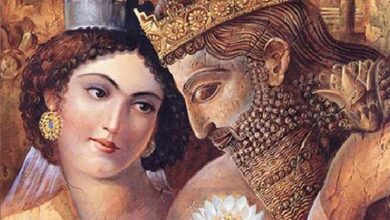Naturalism

The “Naturalist School” was apparently named April 16, 1877, at the dinner table at the dinner table where Gustave Flaubert, Edmond de Goncourt, ilemile Zola, and the future Madan band had gathered. And this title, which was taken from the language of science, philosophy and art criticism, entered the literature.
Since the seventeenth century, the French Academy of Fine Arts has called the idea that imitation of nature essential in everything naturalistic. This term was especially used for painting. Baudelaire believed: “Ingre is the most famous representative of the naturalist school of design.
In philosophy, naturalism is the system of those who accept nature as the primary principle and carry everything into it. From the Epicureans to the positivists, including Gassendi and the Encyclopedia can be placed in this category.
The word eventually takes on a deductive meaning in the dictionary of some critics. It refers to the efforts of a writer who, according to Victor Hugo (1859), tries to deal with social issues in the same way that a natural scientist does with zoology. “Observer… and naturalist” reads.
Zola’s naturalism is at the same time a kind of aesthetic, an unwavering allegiance to truth, and a literary necessity for positivist philosophy, and ultimately a transfer of the methods of natural history to the novel. Naturalism is philosophically the complete and pure power of nature that has a unique order. Literally, it is called the exact imitation of nature.
Some naturalist writers believe that literature and art should have a scientific aspect. According to Emil Zola, as a biologist examines living things, the author must follow the method of a biologist, and the experimental method must be considered by the authors.
The characteristics of the style of naturalism are:
1- The individual and the society do not have any external privileges. Slowly
2- In naturalistic writings, too much attention is paid to details. This narrow-mindedness and detail and mentioning very minor factors and events sometimes become boring and useless. This mention of details includes the smallest movements of the protagonist to the smallest detail in his environment and the most minor incident.
3- In this style, the body is more valuable than the soul. That is, any kind of order or disorder is related to the human body. Which is also the result of inheritance and the psyche and soul are only shadows.
4- In the style of naturalism, long and useless conversations occupy such a subject of novel and play. This conversation is spoken in slang or in any way the speaker deems appropriate.
The naturalist poets and writers of some countries are:
– Emile Zola, leader of the French naturalists
– George Moore from England
– Van Lanp Amants from the Netherlands
– Kretzer, Holtz Schlaff, Hoptmann from Germany
Naturalism was born of the positive philosophy of Auguste Kent and its commentator and commentator Hippolytus is the body of the famous French critic. Just as life is studied by the natural sciences, so art and literature must conform to the laws of science, Tan says. He believes that what the author creates is inevitably dependent on factors, and that the human mind obeys the strong rules that determine its behavior.
Naturalism comes along with realism. The greatest representative of French naturalism is Emile Zola. He and his associates are trying to give a scientific aspect to art and literature.
According to him, the writer must abandon the imagination and have a sense of realism, and like a chemist or physicist working on inanimate matter, or like a physiologist experimenting with living things, the writer must also talk about Work in the same way on the traits, characteristics, behavior and habits of individuals and human communities.
Naturalism believes in scientific algebra and says that events that occur in the world are in accordance with scientific laws and under the influence of algebraic causes, and according to this algebra, certain results are obtained from certain conditions.
According to this group, the psychological quality and behavior of individuals in society are determined by their physical condition. Zola considers the human world to be subject to the same determinism that governs other beings in nature. He considers the novelist to be a descriptor of the individual and social situation of human beings. And accepts the impact of heredity on personality development. The character in Zola’s novels is influenced by temperament and heredity and other such factors. Therefore, he is forced to do certain things.
The author of Naturalism describes the details and uses these details to prove his own scientific point of view.
He considers mental state as a direct result of physical condition. Physical condition is, in his view, what he inherited. One of the important points in the way of naturalism is paying attention to language. And other attention to the description of ugliness. The author tries to use the same sentences and phrases in quoting the speech of each of the fictional characters that should naturally be uttered. Although those phrases and words are ugly and awkward.
Among those who are friends and collaborators with Zola and to some extent like his style are Gustave Flopper and Mopasan. However, in many cases Flaubert disagrees with Zola and protests against him, and “Guy de Maupassant”, who is in fact the first to introduce a short story in French literature, although he is friends with Zola, but his naturalism is a kind of Realism is exaggerated and different from what Zola says.
Naturalist Philosophy
According to Diderot (1713-1784) In the eighteenth century, naturalists were those whose profession was the careful observation of nature and whose only religion was the religion of nature. Diderot could not have described his own method better than this. The other philosopher sought to describe nature and man through experience-based reasoning, and rejected everything supernatural; his philosophy led to a kind of pantheistic materialism.
In 1839, St. Boo called eighteenth-century philosophy materialism, or religious dehri, or as they like to call it, naturalism.
The tradition of philosophers to which the ideologues (Cabanis and Destutt de Tracy) have remained faithful also retained its power in the nineteenth century. Saint Simon, like the Encyclopaedia, believes that it brings wealth, peace and prosperity, and proclaims the rule of industry and science. His student August Kent (1859-1798) founded sociology and with him began the age of philosophical philosophy.
Renan (1823-1892 and Berthelot (1828-1907) promote Berthelot’s dream of humanity rediscovered in the shadow of the science of life, and again, eighteenth-century philosophy is one of the masterpieces of the human mind, the thought of the body. 1828 – 1893) Nourishes Tain, a heir to Condillac, who claims to pay attention to the analysis of chemistry in psychological analysis, and opens a definitive algebraic critique with the history of English literature (1843). He admires the work with fascination, and this famous introductory sentence puts “vices and virtues of products such as blue and sugar cuts” on the table.
Around 1870, when Rogun Makar was formed, naturalist thought prevailed. Since the eighteenth century, this philosophy has weighed heavily. The spirit of systematization has taken the place of freedom and optimism has given way to nowhere.
Schopenhauer
Schopenhauer’s philosophy (1860-1888), which has influenced many writers in a scattered manner, has not been unaffected by naturalist writers either. Zola’s friends, without realizing the depths of the world as a will and representation, sought in it a humorous despair and a kind of “black poetry.” Which was derived from the common determinism of the time. Although this pessimism did not damage Zola’s courageous trust, over-reliance on it might have ruined all the miracles of science they believed in. However, later, when that decisive trust was lost, Schopenhauer’s philosophy became more influential in later writers. In the story After a Death (1883), Mopasan conveys the “unforgettable laughter” of the German philosopher.
* Sources and references are available in the editorial office of Artmag.









